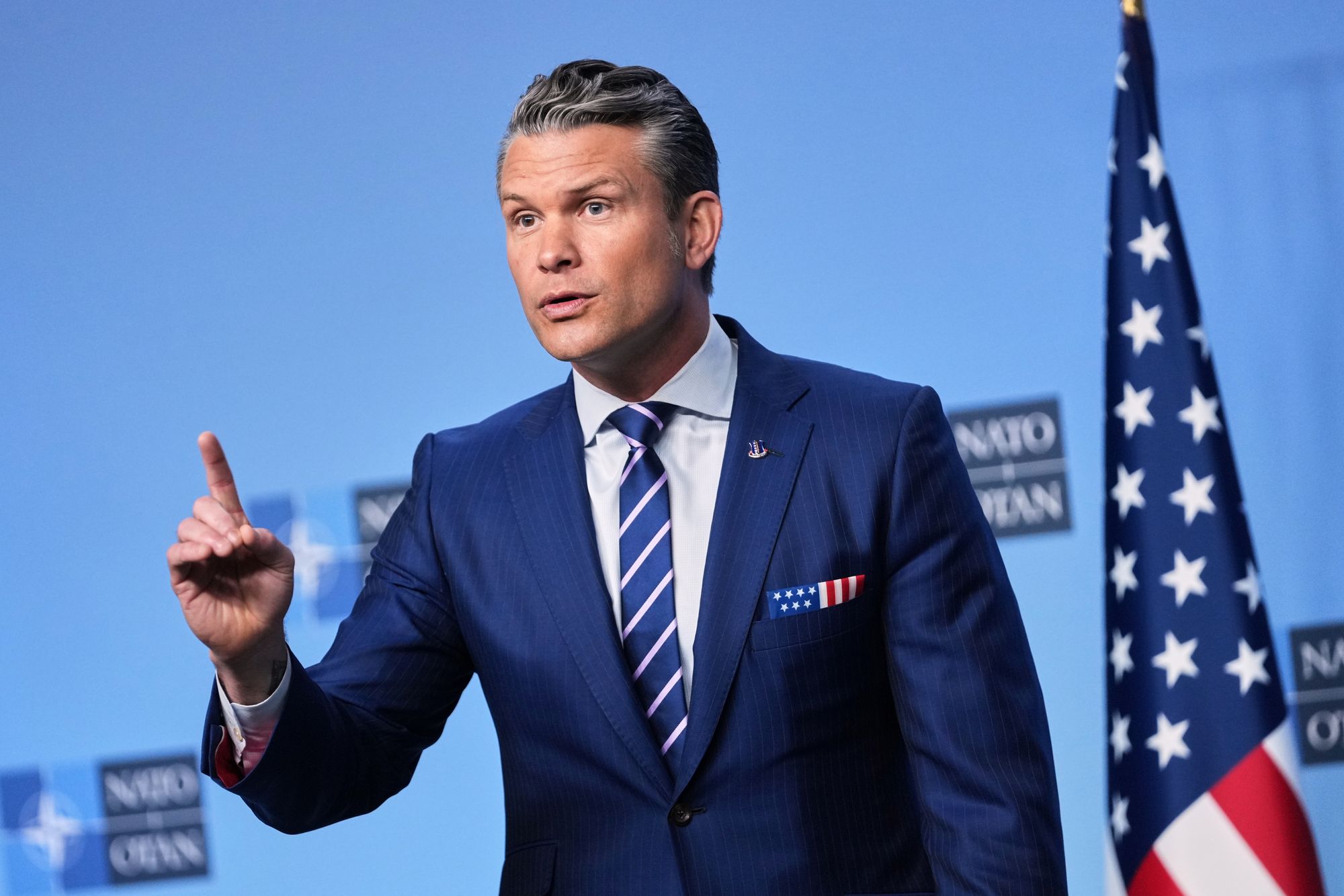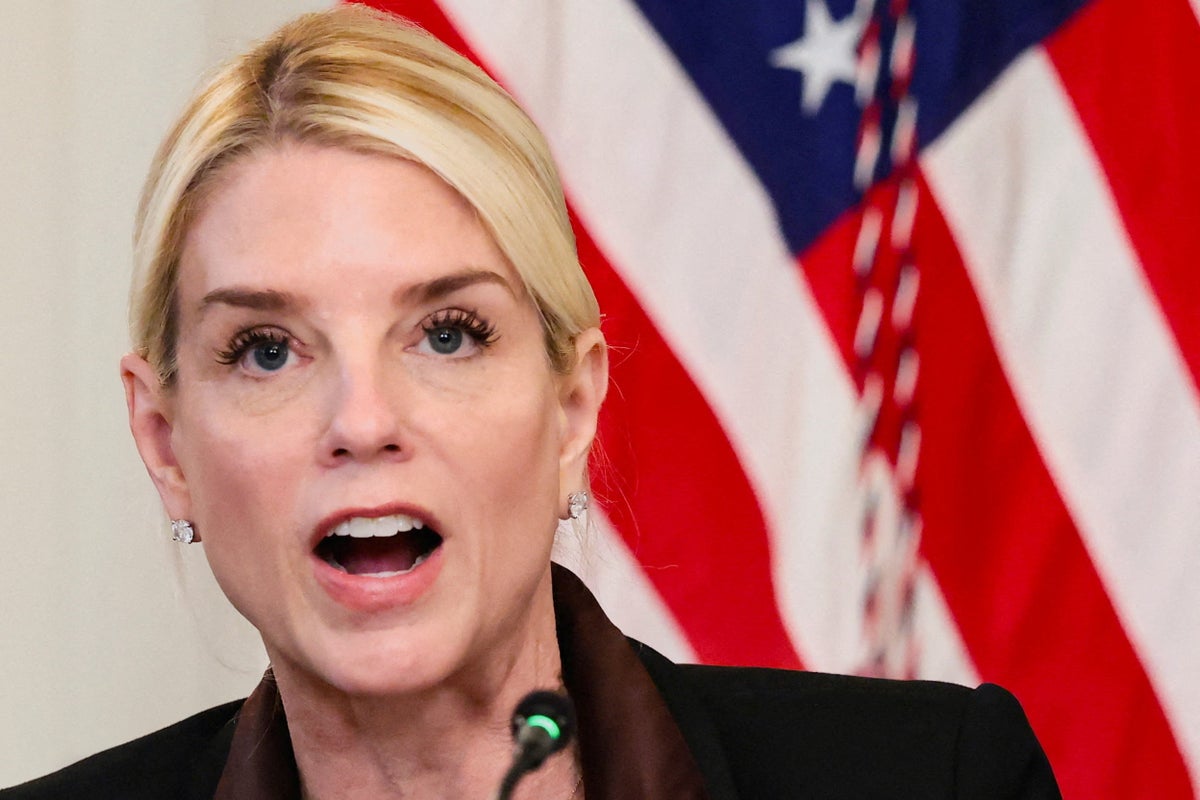The longtime personal attorney for Defense Secretary Pete Hegseth, who represented the former Fox News star after he was accused of sexual assault, has played a key role in orchestrating the Pentagon’s new restrictive press policy, according to The Washington Post.
Tim Parlatore, who served as Donald Trump’s lawyer as well, is also facing internal scrutiny from other defense officials over his dual role as Hegseth’s legal fixer and a recently commissioned military officer who was added to the Pentagon chief’s staff. Amid concerns over Parlatore’s increasing influence in the department, the lawyer helped shape the media crackdown that is set to take effect this week, the Post reported.
Meanwhile, nearly every news organization with reporters in the Pentagon press corps – including Hegseth’s ex-employer Fox News – has stood in solidarity and refused to sign the new press rules, citing violations of the First Amendment and the Pentagon’s “unprecedented” intimidation of journalists.
The only news outlet that has agreed to the Pentagon’s 21-page policy, which prohibits journalists from soliciting unclassified information from defense employees and threatens revocation of credentials for seeking tips, is far-right cable channel One America News. Notably, earlier this year, the MAGA network fired its chief Pentagon correspondent after she criticized Hegseth for limiting media access and rarely holding press briefings.
The Pentagon gave media members until the end of the day Tuesday to acknowledge the severe press restrictions, stating that any reporter who refuses to do so must turn in their press badges within 24 hours. Officials at the department, which was recently rebranded the Department of War by the Trump administration, expect multiple news organizations to challenge the press restriction in court amid the standoff.

Parlatore, who also counts accused organized crime leaders among his clients, joined Hegseth’s staff in March after receiving a commission in the Navy Reserve as a mid-ranking officer. Shortly after Parlatore’s arrival, Hegseth fired multiple political appointees as he looked to shrink his advisory group to a small circle of trusted loyalists. At the same time, the arrangement allows Parlatore to continue working at his private law practice.
“People familiar with Parlatore’s actions describe him as calculating and brash, at times angering others on Hegseth’s team,” the Post reported. “He uses a desk in the defense secretary’s front-office suite, and has outlasted several other senior aides who have been either fired or marginalized during a months-long period of infighting and instability among the secretary’s brain trust. Parlatore’s sway with leadership far exceeds his rank, Navy commander, a dynamic that has made some officials uncomfortable, people familiar with the situation said.”
When asked about Parlatore’s role at the department and in helping shape the media restrictions, Pentagon spokesperson Sean Parnell told the Post that the attorney is a special adviser to the defense secretary and “has extensive legal experience regarding First Amendment cases and press freedom.” The Pentagon declined to respond to further questions about what work Parlatore did on Hegseth’s behalf.
Parlatore, meanwhile, defended the press rules in an interview with the Post, stating that it was essential to protect information security. He also justified his role on Hegseth’s staff and the work he’s done for the Pentagon chief, adding that he is following established conflict-of-interest guidelines.
“One of the tremendous benefits of being a reservist is the ability to bring in outside experience, and I have a lot of experience in a lot of areas that no active-duty [lawyer] or career attorney in the general counsel’s office could possibly provide,” he said. “So I do get called upon on various nonroutine matters.”
Besides advising Hegseth on the press restrictions, which have been slammed by Fox News hosts and conservative legal experts who are generally sympathetic to Donald Trump, Parlatore also took the lead in Hegseth’s use of polygraph tests to find media leakers within the department.

The practice sparked division within the administration, especially after it was reported in the press, and prompted the White House to order Hegseth’s team to stop. The episode resulted in Parlatore’s reputation taking a hit at the department, according to the Post.
Parlatore has known the defense secretary for years and represented Hegseth when a woman accused the former Fox News star of sexually assaulting her in 2017. Hegseth eventually paid the woman $50,000, a settlement that came to light last year when Hegseth was nominated to lead the Pentagon.
After the revelations became public, Hegseth maintained his innocence, while Parlatore portrayed the woman as the “aggressor” and the sexual encounter as consensual, claiming that the payment was made to head off a baseless lawsuit. He also threatened to sue the accuser if she repeated the “false claims,” and Hegseth was not confirmed as defense secretary.
“The scandal nearly derailed Hegseth’s nomination and left him embittered toward the journalists who chronicled his bruising path to confirmation, people familiar with the matter said,” the Post noted.
As for the media restrictions that Parlatore helped orchestrate, the attorney defended the new rules even as Trump-friendly legal scholars have assailed the policy as an attempt by the Pentagon to “create a stranglehold on the free press.” Additionally, Fox News anchor Bret Baier and retired Gen. Jack Keane – now a Fox News analyst – blasted the letter as an improper attempt to “spoon-feed information” to journalists.
“It has nothing to do with embarrassing the secretary,” Parlatore said, insisting that the policy had nothing to do with cutting off reporters from scrutinizing Hegseth. “That’s a talking point that people have raised, but this is purely focused on preventing criminal activity.”
The Pentagon Press Association, which represents journalists covering the department, has a far different view of the situation.
“Our members did nothing to create this disturbing situation,’ the group said in a statement this week. “It arises from an entirely one-sided move by Pentagon officials apparently intent upon cutting the American public off from information they do not control and pre-approve.”

.jpeg)




















.jpeg)












 English (US) ·
English (US) ·